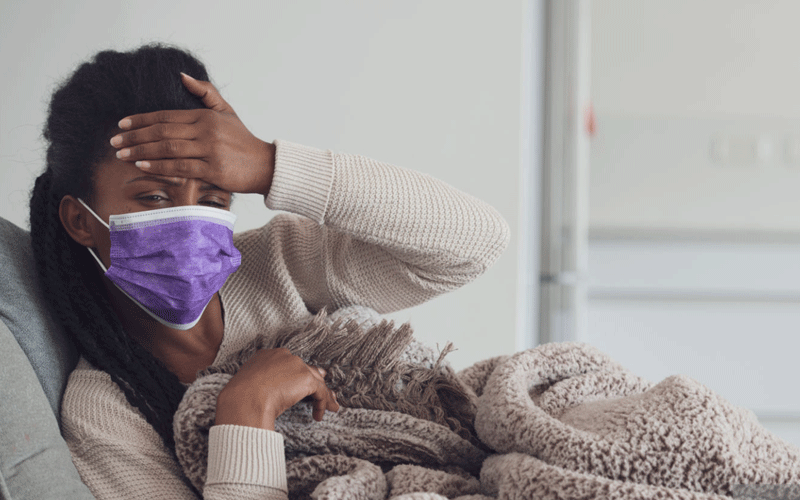Ten ways to care for yourself if you have coronavirus

The country is now facing its own serious Covid-19 spread, and while we have heard of what measures to take to prevent us from contracting the virus, little information is available on what to do when you actually test positive for the virus. There is still no drug to treat the virus yet. So if you have confirmed Corona symptoms, BETTY MUINDI compiled tips from the Centre for Disease Control and Prevention and other sources on how to manage the condition at home.
Seek medical help
If you have a fever or a dry cough or any other symptoms of the coronavirus, call 719 or text *719# which is a toll-free number provided by the Government of Kenya.
If you are older or have underlying medical conditions, it’s even more important to call your doctor, even if you have only mild symptoms.
Before you go to your doctor’s office, call ahead so that medical staff can wear the appropriate protective gear and be ready to help take care of you without exposing others.
Stay home
Stay home from work and away from other public places. If you must go out, avoid using any kind of public transportation, sharing rides, or taxis.
Also, monitor your symptoms carefully and if your symptoms get worse, call your healthcare provider immediately.
People who are mildly ill with Covid-19 are able to recover at home. Do not leave, except to get medical care.
Get rest and stay hydrated
Get plenty of rest and drink a lot of water to help your nose by maintaining the mucous membrane and decreasing irritation when coughing, sneezing and even just breathing.
Watch out for emergency warnings
If you develop emergency warning signs for Covid-19, get medical attention immediately.
Emergency warning signs include trouble breathing, persistent pain or pressure in the chest, new confusion or inability to rise up from a sitting or lying position and any other symptoms that are severe or concerning.
Cover mouth when you cough, sneeze
Cover your mouth and nose with a tissue when you cough or sneeze. Wash your hands often with soap and water for at least 20 seconds or clean your hands with an alcohol-based hand sanitiser that contains at least 60 per cent alcohol.
Most preferably, use disposable tissues that you can throw right away in a lined trash can.
Don’t share room
As much as possible, stay in a specific room and away from other people at home. Also, you should use a separate bathroom, if available.
If you need to be around other people in or outside of the home, wear a facemask.
If the whole household shares one bathroom, ensure you thoroughly clean or sanitise all surfaces you touch in the bathroom like counters and doorknobs.
Clean surfaces in your isolation area every day; let a caregiver clean and disinfect common areas and high touch surfaces in other areas of the home, but not your room.
Clean hands often
Wash your hands even more often if you have the virus, with soap and water for at least 20 seconds.
This is, especially important after blowing your nose, coughing, or sneezing; going to the bathroom; and before eating or preparing food.
If soap and water are not available, use an alcohol-based hand sanitiser with at least 60 per cent alcohol, covering all surfaces of your hands and rubbing them together until they feel dry.
Soap and water are the best option, especially if hands are visibly dirty. Then avoid touching your eyes, nose, and mouth with unwashed hands.
Don’t share personal items
Do not share dishes, drinking glasses, cups, eating utensils, towels, or bedding with other people in your home. And after using these items, wash them thoroughly with soap and water.
Stay informed and beware of misleading information
Initially, the World Health Organisation cautioned against people with Covid-19 taking anti-inflammatory drugs like ibuprofen, over concerns the drugs could worsen the effects of the infection.
But it then retracted the statement, and other health experts and the European Medicines Agency have said there’s a lack of scientific evidence establishing this.
A number of myths on what is and is not the cure of the virus have been peddled on the internet, and some of those remedies could worsen or prolong infections.
Experts advise that patients should check with their doctor regarding which pain reliever is right for them to use.
Care for the sick
Hep the patient follow their healthcare provider’s instructions for medications and care.
If you must clean and disinfect a sick person’s bedroom or bathroom, do so on an as-needed basis.
Wear a mask and wait as long as possible after the sick person has used the bathroom.
Regularly clean and disinfect high-touch surfaces such as phones, remote controls, counters, tabletops, doorknobs, bathroom fixtures, toilets, keyboards, tablets, and bedside tables. Prohibit visitors who do not have an essential need to be home.











